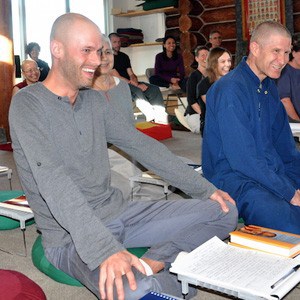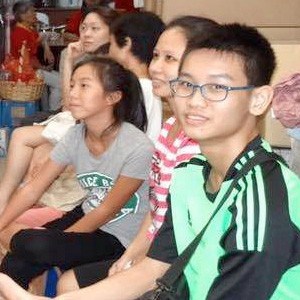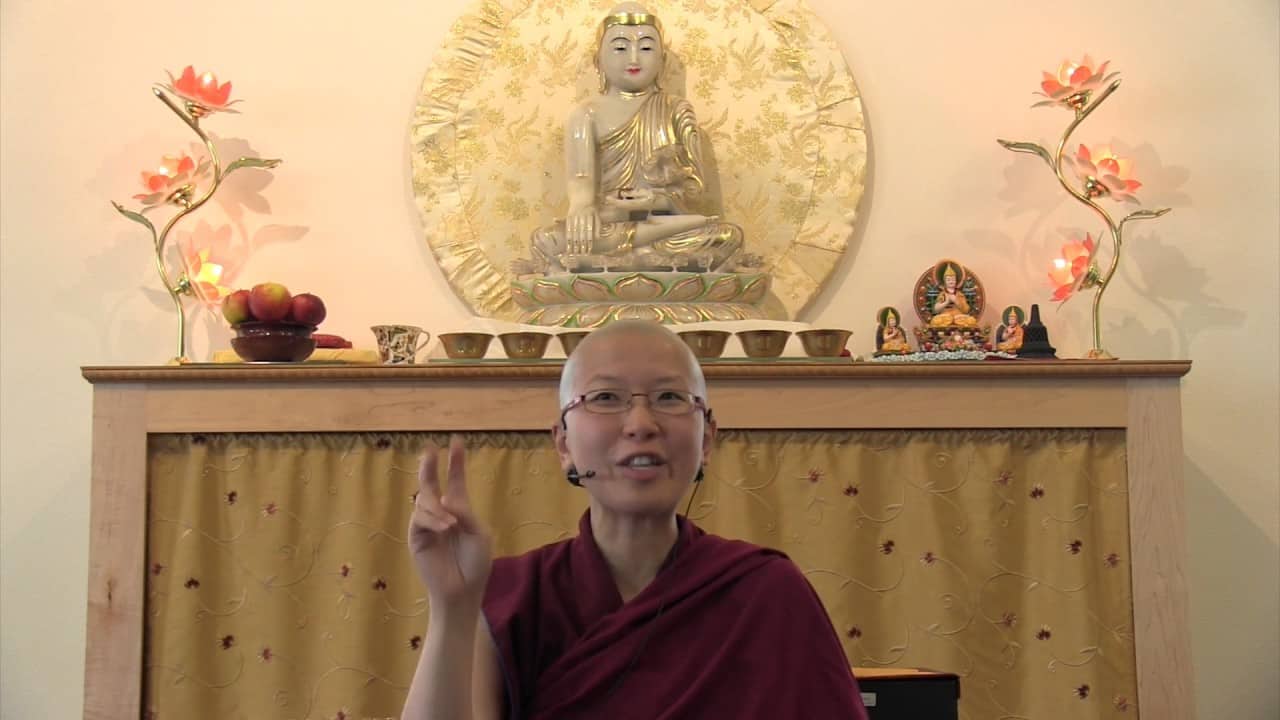Self-acceptance

Recently, I have been focusing on the practices of self-acceptance and self-empathy as taught in Nonviolent Communication. It seems to me that this is the first thing to do on the spiritual path. How can we develop compassion for others without first accepting our own physical and mental pain and connecting deeply with our own experience?
Ethical conduct and self-acceptance are related. When we lack self-acceptance, we may act in self-destructive ways. In this context nonvirtue can be seen as a desperate attempt to meet our needs at the expense of others and ourselves. Actions such as indulging in intoxicants and unwise sexual behavior harm all involved, serve to ignore our own hurt, and act as a refusal to accept our own suffering.
When I recall past times of intense mental suffering, I see that I not only lacked wisdom, but I also lacked an acceptance or even connection to my own experience. My pain was someone else’s fault and my happiness was someone else’s responsibility. There was a complete disconnect between my feelings and my own role in their rising.
Back then I thought that what I did, how I looked, and what people thought of me defined me; it was me. I refused to accept what I did and how I looked. I was going up and down emotionally based on what I thought others thought of me, while refusing to accept myself.
But does a mistake make me bad? Does my virtue make me good? Is basing my self-confidence on my imperfect behavior stable? Is relying upon my youth dependable? Is self-worth that depends on others’ opinions steady? Basically, I have to ask, “Is conditional acceptance enough?” Is acceptance based on impermanent things that are mixed with afflictions capable of bringing me lasting peace and contentment?
Only unconditional acceptance, love, and compassion for ourselves is reliable. Therefore, to achieve that goal, I must rely on the advice of those who have achieved unconditional acceptance themselves and those who are striving to do the same. They are the only dependable sources of refuge.
Imagine accepting the arising of unpleasant feelings and the passing away of pleasurable ones, thereby cultivating equanimity towards the whole of our experience.
Accepting my own suffering,
I have no wish to harm others.
Accepting their suffering,
I am compelled to help them.
May we not turn away from our experience whether pleasant or unpleasant, but turn towards it with wisdom. May we accept it, hold it, hold ourselves in care, and then keep extending that tenderness and love outward until it reaches all living beings.
Venerable Thubten Ngawang
Originally from Florida, Venerable Thubten Ngawang met the Dharma in 2012 when a friend gave him Venerable Chodron’s book, Open Heart, Clear Mind. After exploring Buddhism online for awhile, he began to attend talks at Drepung Loseling Monastery’s Center for Tibetan Studies in Atlanta, where he took refuge. He first visited the Abbey in 2014 and then spent extensive time here in 2015 and 2016. After about six months of training as an anagarika, he decided to remain as a lay person to reassess his spiritual aspirations and moved to Spokane in early 2017. During his time in Spokane, Ven. Ngawang worked at a non-profit in the affordable housing industry, facilitated classes on Nonviolent Communication at the local prison, and attended the weekly meditation class offered by Abbey monastics at the Unitarian Universalist Church. Coming up to the Abbey frequently to attend retreats and offer service sustained and increased his Dharma practice. In 2020, with the pandemic interrupting many of these activities, Ven. Ngawang moved to Tara’s Refuge, a small house on the Abbey property, to focus more on Dharma. This situation proved very supportive and eventually led to him moving up to the Abbey in the summer of 2021. After reflecting on the distractions of lay life and the disadvantages of following attachment, Ven. Ngawang resumed anagarika training in August, 2021. With more confidence in his ability to work with afflictions, and recognition of his improved ability to live happily in community, he requested ordination ten months later. He was ordained as a sramanera (novice monk) in September 2022. Currently, Ven. Ngawang is a part of the Abbey’s prison program; facilitates SAFE and offering service; supports the grounds team and utilizes his architectural design background where needed.


